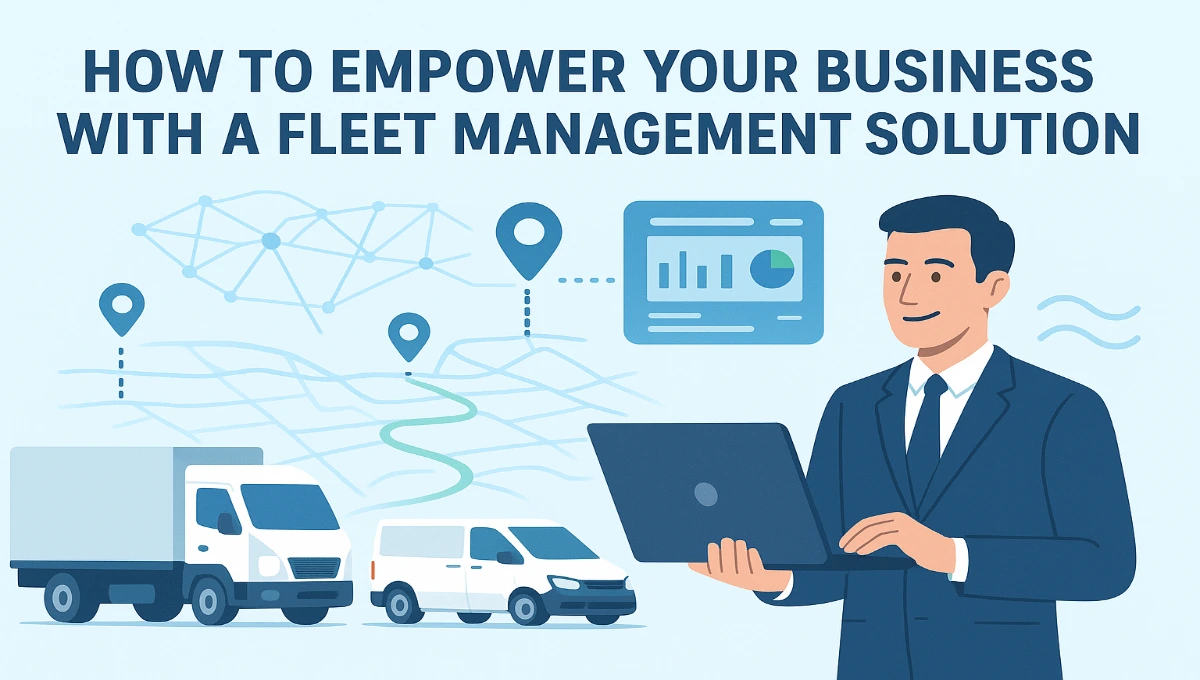In today’s quick-moving and logistics-driven economy, managing a line of vehicles efficiently is essential for business success. Whether you run a delivery service, logistics company, or any business that relies on transportation, integrating a robust fleet operation can deliver cost savings, boost productivity, and enhance client satisfaction. These solutions combine software, hardware, and data analytics to offer real-time perceptivity into vehicle operations, motorist behavior, and route effectiveness. Here are five poignant ways a fleet management system can empower your business and give you a competitive edge:
Optimize Vehicle Utilization
Fleet operation platforms enable businesses to cover vehicle performance and operation through GPS tracking, machine diagnostics, and telematics data. By analyzing this information, companies can identify underused means, schedule preventative maintenance, and extend vehicle dates. Optimized application ensures each vehicle contributes to the bottom line without incurring gratuitous functional costs. Also, cataloging effectiveness increases when vehicles are allocated based on real-time position and job precedence. These benefits translate into reduced time-out, energy savings, and better return on investment. This position of control allows directors to align line operations closely with business objectives and service-position prospects.
Enhance Driver Accountability and Safety
Driver behavior plays a major part in energy consumption, insurance costs, and overall functional effectiveness. Fleet operation tools offer motorist scorecards and safety cautions by assessing speeding, harsh braking, and faulty patterns. These insights foster a culture of responsibility and encourage safer driving practices. With the capability to review detailed trip histories and detect anomalies, directors can apply targeted training programs to reduce pitfalls. In addition to lowering accident rates, this visionary approach can significantly reduce liability and improve employee morale. Over time, the reduction in safety incidents can lead to lower insurance premiums and better company-wide compliance with safety norms.
Streamline Transport Management
For businesses lacking the internal coffers to manage complex logistics operations, outsourcing to third-party providers via line operation platforms offers significant advantages. These systems ensure flawless communication and performance tracking between in-house brigades and external carriers. Businesses can centralize order dispatching, cover deliveries in real time, and admit automated updates across the supply chain. By choosing to invest in efficient managed transportation solutions that integrate route planning, compliance checks, and analytics, companies can eliminate inefficiencies and focus on core competencies. Streamlined transport operation through outsourcing enhances scalability, dexterity, and brings control. As a result, outsourcing supported by smart technology helps businesses maintain dexterity in changing market conditions.
Reduce Environmental Impact
Sustainability is no longer voluntary; it’s a business imperative. Fleet operation results help companies reduce their carbon footprint by optimizing routes, reducing idle time, and covering energy consumption. Real-time tracking allows for dynamic rerouting to avoid traffic congestion and minimize emissions. Also, some platforms offer integration with electric vehicle (EV) structure, enabling businesses to transition easily to greener lines. Enforcing eco-friendly practices not only aligns with regulatory trends but also strengthens brand character and appeals to environmentally conscious clients. Long-term environmental earnings can also contribute to eligibility for government incentives and commercial sustainability instruments.
Gain Actionable Business Insights
Data is one of the most precious commodities in modern line operations. Advanced fleet operation systems collect and dissect vast quantities of functional data, offering clear insight into cost trends, vehicle performance, and service delivery criteria. Dashboards and automated reports empower directors to make informed opinions quickly, backed by accurate and up-to-date information. These insights can reveal inefficiencies that would otherwise go unnoticed, enabling strategic adaptations that ameliorate profitability. Whether forecasting fleet expansion or benchmarking driver performance, data-driven decision-making becomes a dependable pillar of business growth. Over time, data-driven strategies foster a culture of nonstop enhancement across the association.
Adopting a fleet management solution is more than just a technological upgrade; it’s a strategic move that can improve functional excellence. From optimizing vehicle use to perfecting safety, streamlining transport, supporting sustainability, and using practical insight, the benefits are far-reaching. As businesses face rising client prospects and greater logistical complexity, investing in the right tools today will build the resilience and adaptability needed for tomorrow. By choosing to contemporize line operations, businesses position themselves to thrive in an ever-evolving field. With the right fleet operation system, companies can confidently gauge operations, reduce threats, and meet the evolving demands of their diligence.



